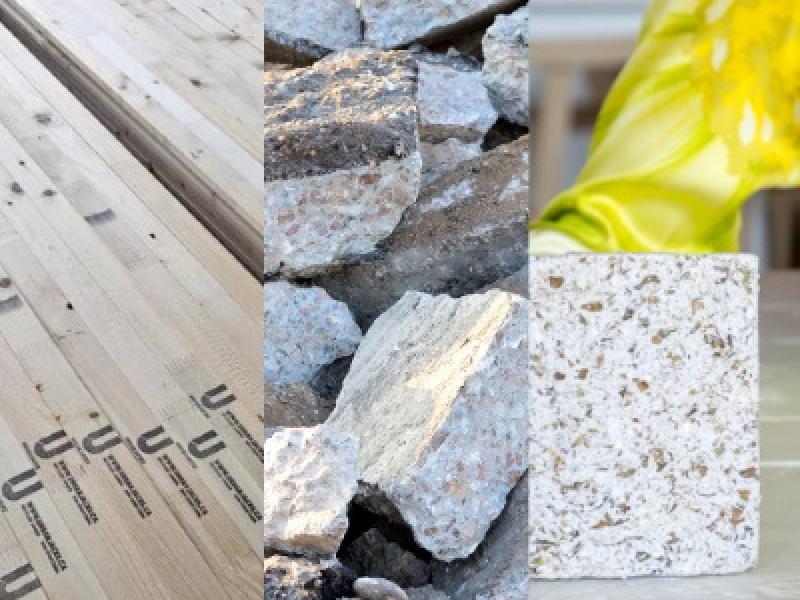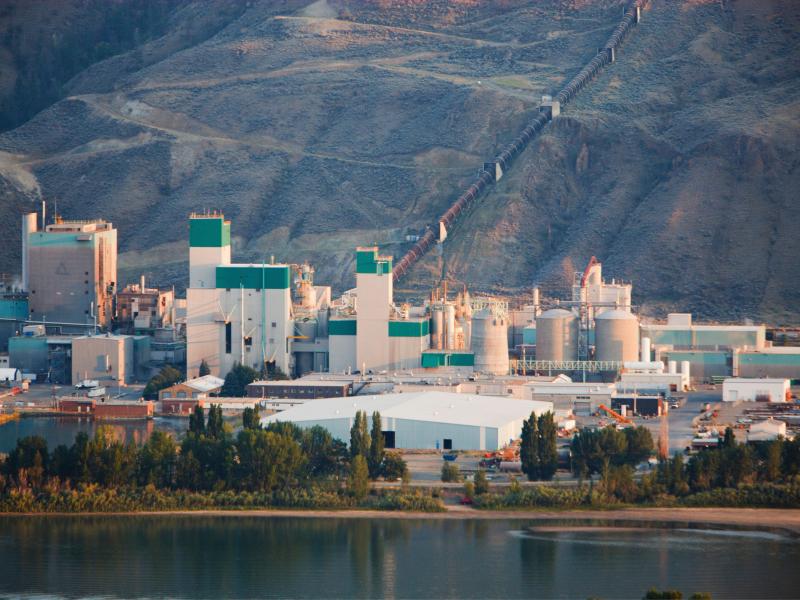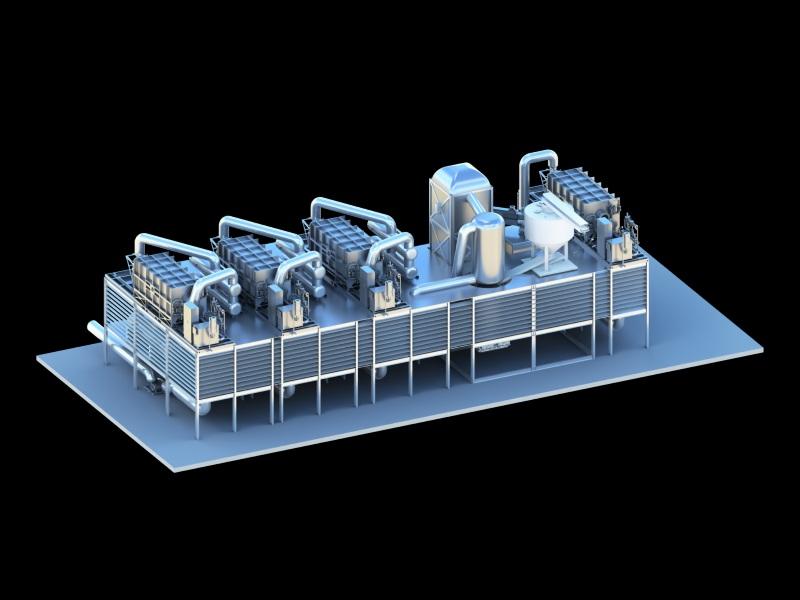Recent Articles
TerraCycle, Holt Renfrew launch beauty package recycling program
TerraCycle, Holt Renfrew to recycle beauty packaging
Waste management innovator TerraCycle is teaming up with Holt Renfrew to reduce the amount of discarded beauty product packaging. The companies plan to collect and recycle makeup packaging scraps to create new products.
Fast fashion has a serious plastic problem
• Treehugger • Treehugger
That new outfit might be trendy, but if it’s made cheaply from virgin polyester fabric and only lasts a few wears, it’s not much different from the disposable plastic packaging that is causing such environmental damage to the world.
P&G opens center to decarbonize supply chains
P&G has opened a Product Supply Innovation Center in Germany’s Rhine-Main region. The Center will be a hub for collaboration with a network of suppliers, tech companies, R&D institutions and universities to develop solutions to decarbonize its global supply chain.
Recovering the momentum of reusables in retail
• Newswire
New research from the National Zero Waste Council, in collaboration with the University of Toronto’s Dalla Lana School of Public Health, sheds light on the safe use of reusable items in retail settings during the COVID-19 pandemic.
Building healthy cities in the doorstep-delivery era
The pandemic has changed our lives and how we move people and goods within cities. Deliveries are essential to everyday life and keeping businesses afloat, but about 90 per cent of the world’s transport energy continues to rely on fossil fuels.
Prime time to electrify last-mile deliveries
NRCan data show that transportation-related emissions account for 20 per cent of all Canada’s emissions, and freight-related sources represent 42 per cent of that. This problem has been exacerbated by increased demand for same-day delivery, which often sees half-empty trucks making rounds.
Parkland rolls out EV charging network in B.C., Alta.
Parkland Corp., one of Canada’s largest gas-station and convenience-store operators, is launching a network of electric-vehicle charging stations in British Columbia and parts of Alberta as the first step in an eventual national rollout.
McMaster launching $28.4M automotive hub
• CBC
McMaster University will run a $28.4 million hub — called iHub — and collaborate with automotive and aerospace giants to develop electric, self-driving and energy-efficient technology. The goal is to boost Canada’s presence in these industries while reaching its net-zero emissions target by 2050.
Ford and Origin use PET plastic in auto production
Ford Motor Company is working with Origin Materials on producing products, including bumpers and paint pigment, using carbon-negative PET plastic produced from sustainable wood residues. PET plastic helps make cars more fuel-efficient while reducing the need for fossil resources.
National Grid and EV100 will electrify fleet by 2030
National Grid, a major utility in the UK and US, joined EV100, committing to transition its fleet of over 5,700 vehicles to electric — 2,879 vehicles in the UK and 2,905 vehicles in the US — and install charging for staff at all locations by 2030.
Honeywell launches 1st Battery Energy Storage System
Honeywell has launched its first Battery Energy Storage System (BESS) Platform, which integrates Honeywell asset monitoring, distributed energy resource management, supervisory control, and analytics functionality to enable organizations to forecast and optimize their overall energy use.
Energy transition takes off in Alberta
For an energy-fuelled province like Alberta, the pace of the energy transition can be dizzying. Three announcements signalled what the future holds for the industry, including plans by TC Energy Corp. and Pembina Pipeline to create the Alberta Carbon Grid.
Hydro-Quebec inaugurates 1st 2 solar power plants
• CTV
For the first time in its history, Hydro-Québec is using solar energy to supply electricity to its main network. Its first two solar power plants have a capacity of 9.5 megawatts and can meet the electricity demand of 1,000 residential customers.
Investing in infrastructure can create carbon lock-in
Carbon lock-in occurs when fossil fuel-intensive systems perpetuate or prevent the transition to low-carbon alternatives. This can result when investing in the wrong infrastructure, wherein planners commit to a percentage of greenhouse gas emissions for the lifetime of the infrastructure.
Canadian developments get closer to net zero
The challenge of making a building carbon-neutral expands when having to share warmth with entire communities. A couple of innovative Canadian developments are getting closer to zero net carbon by getting nature to provide much of the cooling and heating.
Making concrete more environmentally friendly
• CBC
Concrete is expected to contribute 12 per cent of global greenhouse gas emissions by 2060, but there is a movement to make it greener by reducing its carbon footprint. The Global Cement and Concrete Association has promised carbon-neutral concrete by 2050.
What the ESG…F
ESG has evolved and now reaches nearly every aspect of the corporate and investment decision-making processes. That growth has presented many opportunities for investors and corporations to measure and improve practices across all aspects of the E, S, and G.
Why the world needs better climate pledges
• GreenBiz
In the lead-up to the COP26 climate conference in Glasgow, politicians, CEOs and celebrities will likely make more net-zero pledges; however, without scientifically sound goals, it is impossible to increase climate action to the level Earth needs.
Credible net-zero plans crucial for future financing
• GreenBiz
At the launch of the Imperial College Business School‘s Leonardo Centre for Business for Society, a financier warned that banks and investors will distance themselves from companies that do not demonstrate “credible intentions” to transition towards sustainable business practices.
Petrochemical production VS promise of green chemistry
• GreenBiz
Global oil consumption declined by roughly 9 percent in 2020 as the pandemic reduced business and pleasure travel, factory production, and transportation of goods. This abrupt drop accelerated an ongoing shift from fossil fuels to renewable energy.
Canada’s climate plan charts hard road ahead for high-polluting oil sands
C anada has set ambitious targets for slashing emissions to fight climate change, but faces a stiff challenge: not only is its economy dependent on oil production, but the Canadian oil industry’s carbon emissions are among the world’s highest for every barrel of oil it pumps.
 Industry Events
Industry Events
-
ECO IMPACT 2026
Feb 19 2026
to Feb 20 2026
The Westin Calgary
-
BuildGreen Atlantic
Apr 27 2026
to Apr 28 2026
Halifax, NS
-
The Evergreen Conference
May 06 2026
to May 07 2026
Toronto, ON
-
Building Lasting Change
Jun 17 2026
to Jun 19 2026
Montréal, QC
-
Retrofit Canada Conference
Jun 24 2026
to Jun 25 2026
Halifax Convention Center











